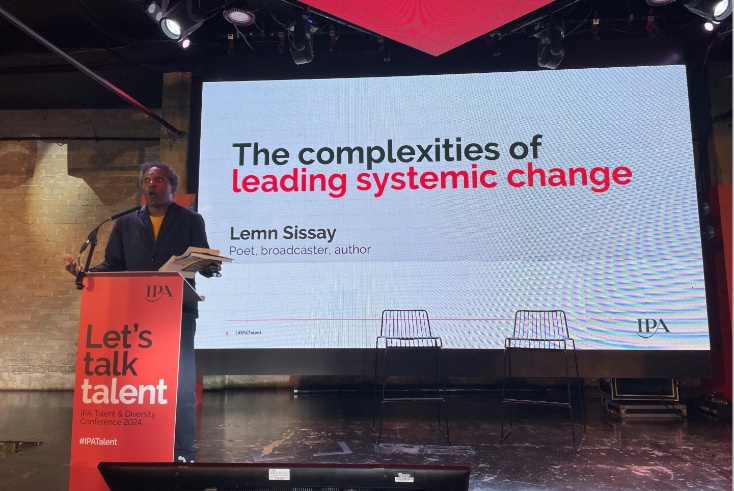Ad industry must act on ‘social progress recession’

“After a year of steady growth, the world has fallen into a social progress recession.”
Those were the stark words of Leila Siddiqi, director of diversity and inclusion at the IPA, who cited the Social Progress Index in her speech at the IPA Talent and Diversity conference this week.
According to Siddiqi, this meant four out of five people in the world now live in a country where social progress is stagnating or declining, with key indicators spanning health, human rights, voice and information.
She recognised a parallel “stalling of progress” in advertising diversity, equity and inclusion (DEI) efforts, especially when it comes to recruitment and remuneration of talent.
This sentiment was shared by speakers throughout the event and attendees who spoke to The Media Leader felt that attention and action on the topic was becoming increasingly difficult to sustain.
Siddiqi stressed that “the most valuable resource” the ad industry has is people and that DEI is “legacy work” that needs to be treated as a long-term business strategy.
Xavier Rees, incoming CEO of Abbott Mead Vickers BBDO and conference host, echoed this argument when he said diversity was even more important in the current context where the nation and the world was increasingly divided.
Advertising has a responsibility as more than just selling but as a force for good, Rees explained, and “the most important job” for leaders is to create an environment where people feel safe at work.
Movement, not moment
In one panel, Trevor Johnson, head of marketing, global business solutions, EUI, at TikTok, and content creator and inclusion consultant Benjy Kusi discussed their respective experiences of the ad industry.
Like Siddiqi, Johnson felt “things are going backwards” and “people’s eyes are glazing over when you mention diversity”. He cited the IPA’s All In census that found 30%, particularly among black respondents, said they were “likely to leave the industry” due to a lack of inclusion.
He continued: “There is a gap in nurturing of that diverse talent that comes through the door. Diversity needs to be seen as an asset, not a chore. That’s what we need to start and that’s when we will start seeing a shift. When it comes to advertising in particular, businesses need to be present and show up in environments where cultural conversations are community first.”
Kusi was one of those who left the industry. He said: “Unfortunately, I was not able to be my best and do my best, because I was going through things my colleagues were not, because I’m a black queer person. There was prejudice and I was experiencing discrimination and I was uncomfortable. There was not a level playing field.”
This in turn pushed him to find a way to have “a broader impact on the industry”, such as through his original content and his campaigns with TikTok about recruitment.
For Johnson, who remains in the industry, he “felt power in being the only one”, as it can make people take notice. He added that, with confidence, you can make people accountable, call people out and make it “a superpower”.
He believes “D&I should be about DNA” — what a company does on a regular basis that goes beyond just advertising.
Kusi concluded: “The work is not done. We cannot take our foot off the pedal and I feel people are. I do not want people to look left and right to see what other people are doing. Set the standard, aim high. Do the work. It is a movement, not a moment.”
As Sara Denby, head of the Unstereotype Alliance Secretariat at UN Women, put it: “Diversity is a recruitment issue, inclusion is a retainment issue and equity is a human rights issue. Do not forget your power to change that.”
Diversity is part of all of us
Poet, broadcaster and author Lemn Sissay gave the keynote speech at the conference.
While DEI can often be framed as “a minority issue”, he stressed that diversity “is a part of all of us”. The opposite of diversity would be “boring” and “not who we are”.
Sissay concluded: “I refuse to be cynical. I refuse to think it is a ‘them and us’ situation. I refuse to hate. I refuse to be bitter. I refuse to allow anger to eat me away.”



